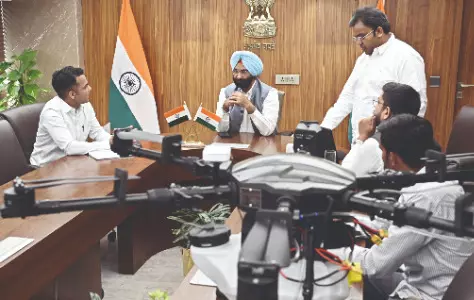Air quality improves as Delhi government implements pollution control measures

New Delhi: The Delhi government has reported a further improvement in the capital’s air quality, attributing the progress to intensified pollution control measures. The Air Quality Index (AQI) in Delhi was recorded at 138, marking a significant improvement from 189 on the same day last year and 153 yesterday.
Environment minister Manjinder Singh Sirsa stated, “Previous governments only made plans on paper, while our administration is taking real action on the ground.” He added that new technologies, such as drone mist sprinklers, outdoor air purifiers, and real-time air quality monitors, are being explored to address pollution concerns more effectively.
According to the government, Delhi is implementing a multi-faceted strategy under the ‘Viksit Delhi’ campaign, which includes the installation of air quality monitoring stations in key pollution hotspots. Sirsa informed that “pole sprinklers are being installed in the
New Delhi area as part of the ongoing efforts to enhance dust control measures.”
The Delhi government’s Action Plan 2025 outlines a series of pollution control initiatives. These include the expansion of electric vehicle infrastructure, stricter vehicular emission controls, and reinforcement of public transport with electric buses and metro connectivity. The use of anti-smog guns and mechanised road sweeping has been made mandatory, while industrial pollution is being addressed through cleaner production techniques and decentralized waste processing.
In addition to technological interventions, the government has introduced large-scale afforestation projects, vertical gardens, and green rooftops to improve urban greenery. Real-time air quality monitoring stations and AI-based pollution prediction models are also being explored for early detection and response to pollution levels.
For the financial year 2025-26, a budgetary provision of ₹506 crore has been allocated for the Environment and Forest Department, with ₹300 crore designated specifically for pollution control and emergency measures. The government also plans to establish six new Continuous Ambient Air Quality Monitoring (CAAQM) stations to enhance real-time tracking of air quality.
Sirsa emphasised that the administration will “continue to explore and implement innovative solutions to ensure long-term sustainability.”



